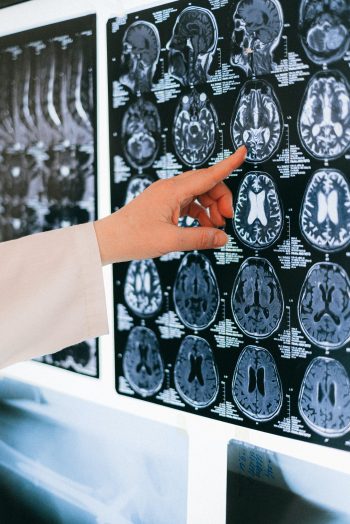This refers to any one of a number of neurologic disorders that appear in infancy or early childhood. These disorders permanently affect body movement and muscle coordination. Cerebral palsy is not caused by problems in the muscles or nerves. It is caused by abnormalities in the parts of the brain that control muscle movement.
Most children with cerebral palsy are born with it, although it may not be detected for months or years later. Other children may develop it in the first few months of life from brain infections, or head injuries.
Common symptoms include:
- Lack of muscle coordination when performing tasks
- Abnormal gait such as toe walking, or dragging a foot or leg
- Increased or decreased muscle tone to all or part of the body
- Developmental delays
- Stiff, tight muscles
- Exaggerated reflexes
The amount of disability a given child has due to cerebral palsy varies greatly depending on the area and the extent of injury to the brain. One child may be severely impaired, not able to walk, talk, or perform any self care activities while another may have only mild clumsiness or toe walking.
Cerebral palsy cannot be cured but there are many interventions that can improve the life of the child. These include:
- Physical, Occupational, and Speech Therapies
- Oral medications to relax tight muscles or control seizures
- Braces or other adaptive equipment
- Wheelchairs
- Walkers
- Surgery to release tight tendons
- Botulinum toxin injections to relax tight muscles
- Baclofen pump implant to relax tight muscles
- Devices, such as computers to assist with communication
For further information visit United Cerebral Palsy
Clinical trials are research studies designed to provide valuable data for a new or existing treatment, or treatment method, to determine if it is safe and effective for humans. In order to determine if a treatment is both safe and effective, testing must be conducted to provide statistical proof. According to laws and regulations, all clinical trials must be reviewed, approved and monitored by an Institutional Review Board (IRB) to ensure the ethical treatment of participants, and to ensure that all participants are fully informed about the study prior to agreeing to participate.


